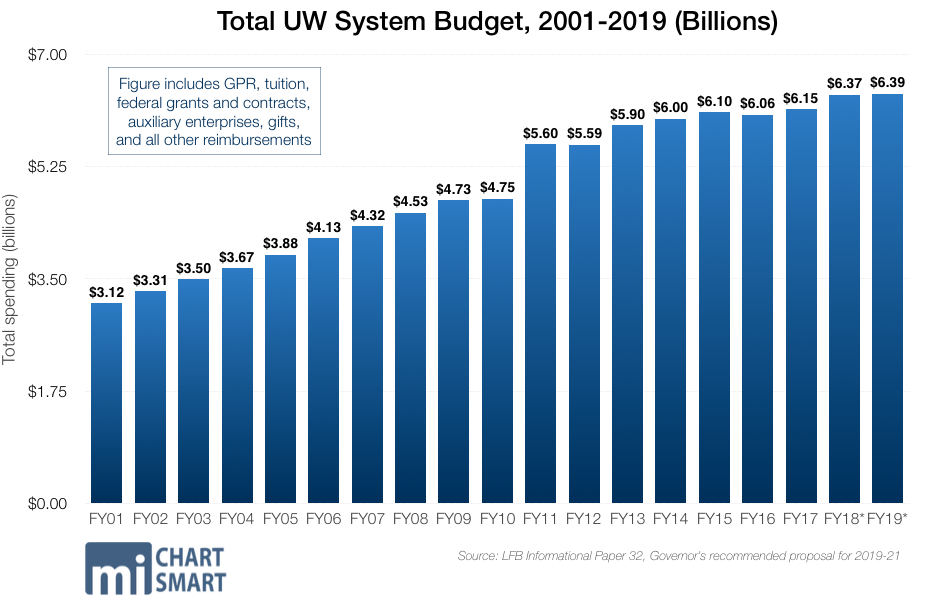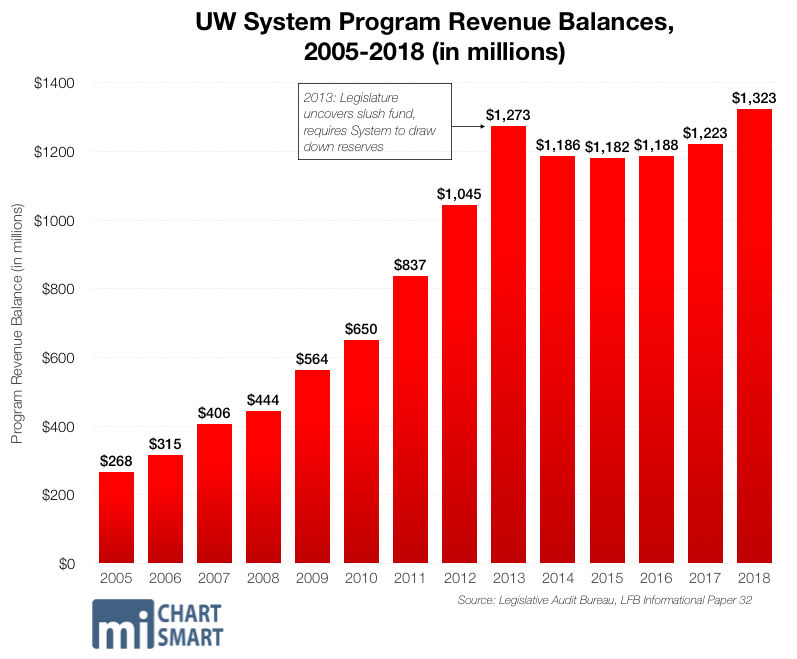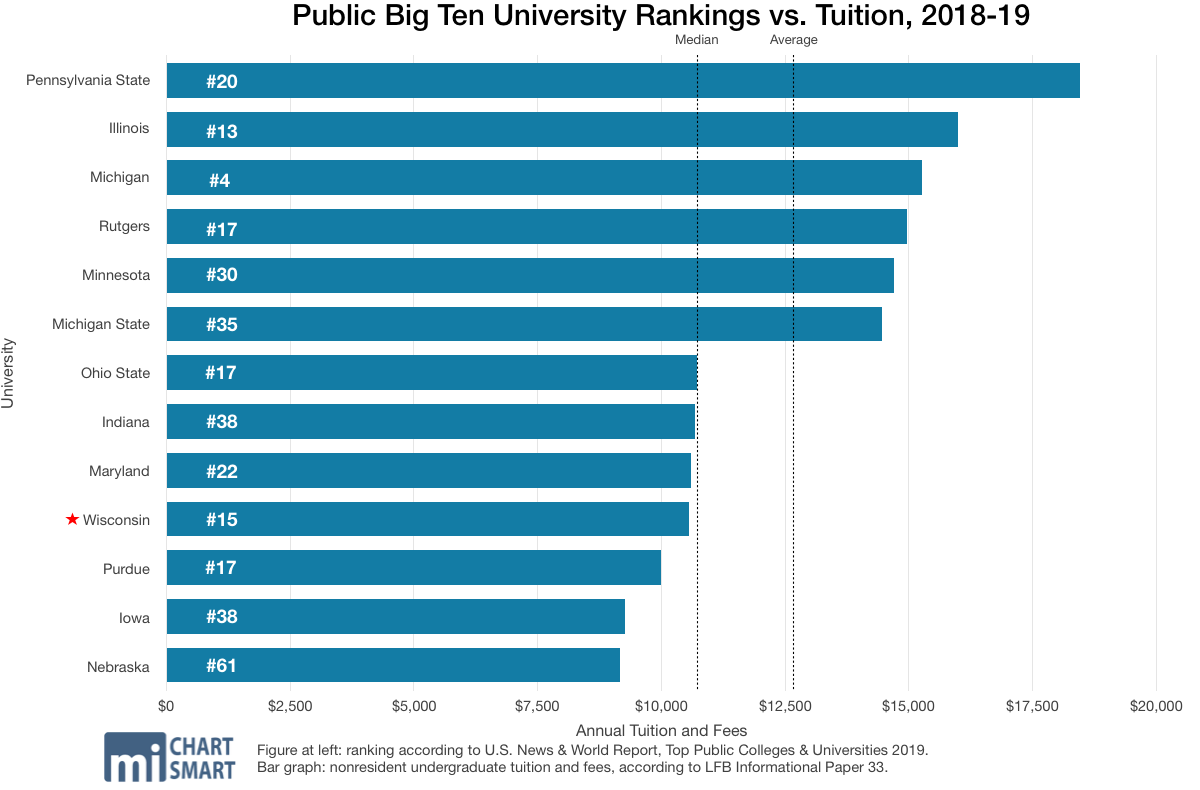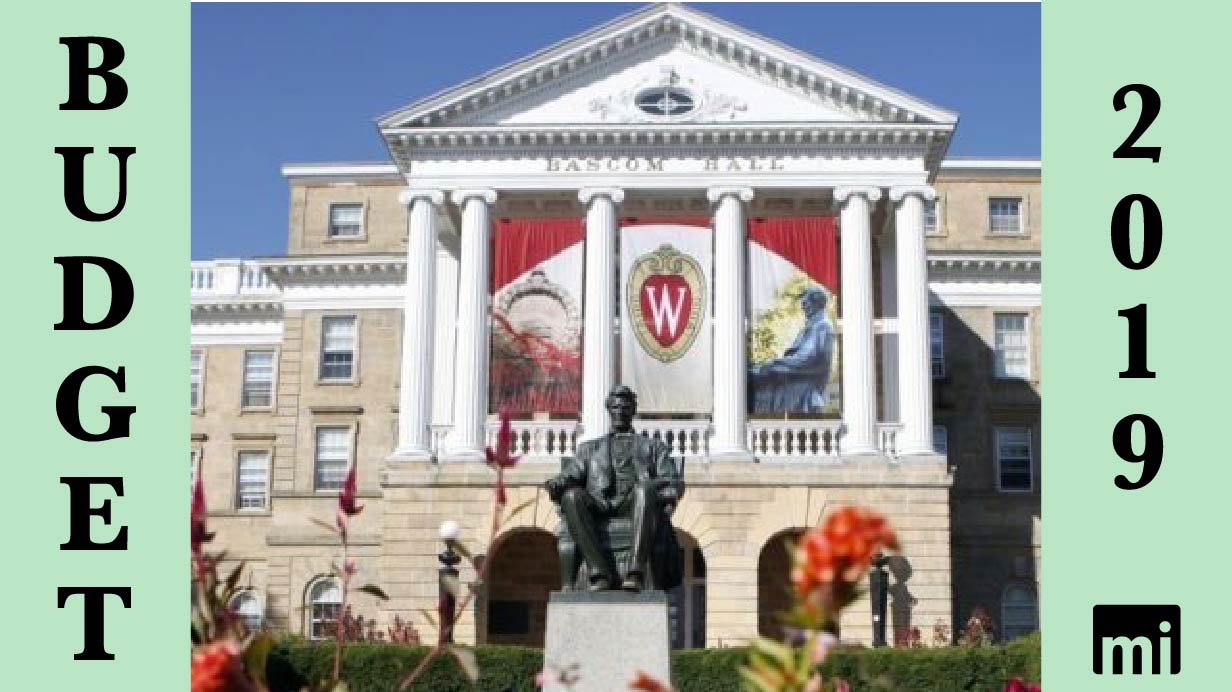 The GOP-controlled Joint Finance Committee, on a 12-4 party-line vote, approved some $58 million in additional spending for the UW System. But it wasn’t nearly enough for committee Democrats. #wiright #wibudget #wipolitics Click To Tweet
The GOP-controlled Joint Finance Committee, on a 12-4 party-line vote, approved some $58 million in additional spending for the UW System. But it wasn’t nearly enough for committee Democrats. #wiright #wibudget #wipolitics Click To Tweet
MacIver News Service | May 29, 2019
By M.D. Kittle
MADISON, Wis. — In a performance worthy of Hugo’s Les Miserables, Democrats on the Legislature’s powerful budget-writing committee on Tuesday cried poverty for a University of Wisconsin System with a total budget of $6.37 billion.
A Republican motion passed Tuesday sends $58 million more to the UW System over the biennium. First, the System must create a plan for how they would spend $45 million of the new funding.
The Republican-controlled Joint Finance Committee, on a 12-4 party-line vote, approved some $58 million in additional spending for Wisconsin’s public colleges and universities.
But it wasn’t nearly enough for committee Democrats, who insisted the System needed more than twice that amount, the $126.6 million spending increase that Democratic Gov. Tony Evers has proposed in his massive $84.2 billion biennial budget plan — a plan gradually being re-written by the conservative majority.
The committee also boosted spending for the Department of Natural Resources and approved pay increases for public defenders, assistant district attorneys and county prosecutors, but, again, not enough to sate the seemingly insatiable spending appetite of JFC Democrats.
Sen. Jon Erpenbach (D-Middleton) argued that the poor University of Wisconsin System has “weathered the difficult financial times that the Legislature and the previous governor (Republican Scott Walker) put them in.” More than $1 billion in cuts from those fiscal conservatives, Erpenbach and his fellow Democrats on the committee cried. And now, just a measly $58 million increase, much of which — $45 million — would be money System administrators could collect in supplemental appropriations, if they come back to the JFC with a plan of how they will spend the state taxpayer money.
Missing in the sad song and dance is the fact that the System has been made whole and then some through the reforms the Republican-controlled Legislature and Walker put in place after inheriting a $3.6 billion budget shortfall from their Democratic predecessors.
Committee co-chair, Rep. John Nygren, noted that between 2012 and 2017, the System saved approximately $750 million in pension costs thanks to Act 10, which, among other changes, requires public employees to contribute to their state pensions. It also raised health insurance contribution levels to at least 12 percent, saving the System another $250 million, the Marinette Republican said.
“Do your math, that’s about $1 billion. It basically eats up all of the cuts you talked about over the years,” Nygren said. “And that doesn’t take into account increases to the the budget that have happened over the years as well.” The last biennial budget alone included an increase of $36 million. Walker’s budget plan originally included a $100 million bump.
UW’s total budget, including the state’s portion, has increased by $770 million, or nearly 14 percent, since 2011.
Nygren reminded his colleagues that the committee was once represented by several accountants. They liked to remind him that “there’s income and expenses.”
“I think Democrats and Republicans might look at those two sides of the ledger a little differently,” he said. “Our perspective is from income, how can we give more back to the people who pay the bills here, the taxpayer. I think your perspective might be how we can spend more of the money that taxpayers in Wisconsin have.”
“The expense side, I would suggest, is one you don’t take a look at, how we can reduce the costs of government,” Nygren added.
Those same accountants a few years back discovered the System had stowed away about $650 million in unrestricted Program Revenue balances, a “slush fund,” if you will. The full balance, including “strings attached” funds, topped $1 billion.
Sen. Howard Marklein, was a member of the CPA Caucus at the time. The Spring Green Republican served on the budget-writing committee then, and does so today.
“At the time, the former UW System president was coming in talking about, ‘We’re broke.’ Meanwhile, looking at the audit reports and data, and there’s $1.2 billion sitting there,” Marklein recalled. More galling was the fact that System officials continued to come hat in hand, even after increasing tuition on in-state students by 5.6 percent or more each year for a decade before the slush fund was discovered in 2013.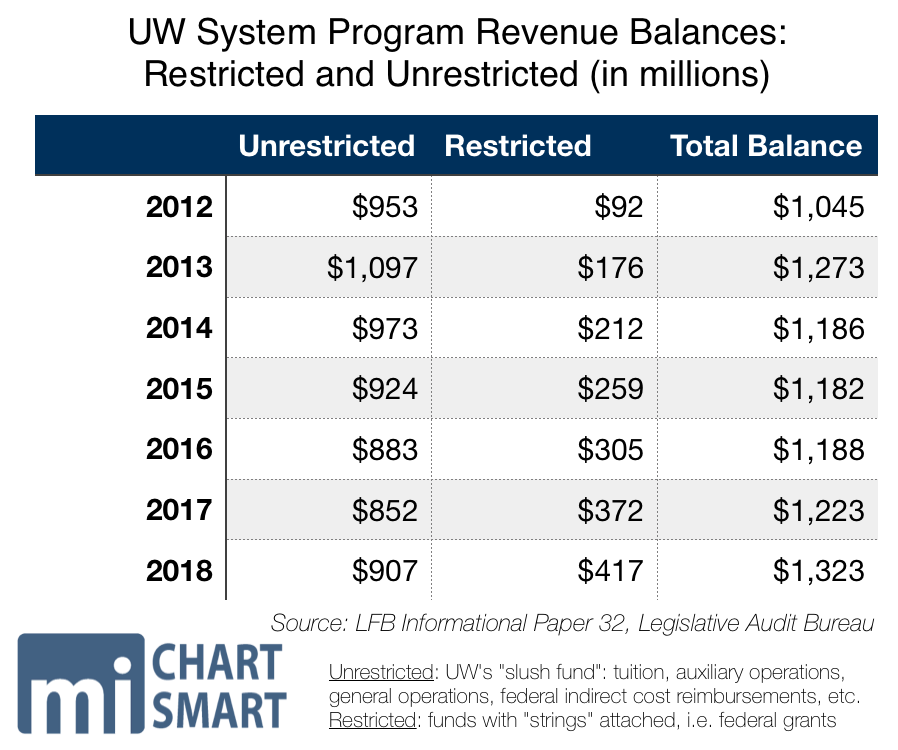
Last year, the System’s unrestricted Program Revenue balances were north of $900 million, with total balances of $1.323 billion.
“We have a responsibility, I have a responsibility to the taxpayers. It’s the taxpayers’ money, I want to be able to let the taxpayers know they’re getting value for their money.”
JFC members agree the six-year-old freeze on in-state tuition should remain in place, but Evers’ budget calls for backfilling the lost revenue, holding the System harmless over the next two years. Evers wants $50 million for that initiative. The GOP-led committee said no.
System President Ray Cross, said such paltry funding won’t do.
“Today’s vote was a missed opportunity and shortsighted. The UW System is the best investment the state can make to develop its workforce and attract and retain talent,” Cross said in a statement.
Sen. Duey Stroebel (R-Cedarburg), agreed with his fellow committee members that the University of Wisconsin System is a powerful resource that serves 170,000 students and has a substantial return on investment (23 dollars for every $1 spent, according to the System).
“But one person’s investment is sometimes another person’s tax-and-spending,” Stroebel said. “We also have a whole lot of other budget priorities here, too.”
Evers’ overall budget would add 701 government positions from all funding sources. A sizable portion of those jobs — 219.84 new full-time positions — would be added to the System’s payroll.
Committee Republicans also rejected a Dem omnibus package that included $45 million for “student success and attainment,” $10 million to hire more nursing program educators to deal with the state’s nursing shortage, and another $5 million for student advising.
As the nonpartisan Legislative Fiscal Bureau noted, the System could use the $45 million approved in the “block grant”-style appropriation to fund all or portions of Evers’ initiatives.
Science Fiction?
Committee Democrats blasted Republicans for not fully funding Evers’ plan to launch a Bureau of Natural Resources Science, and the five scientists the governor sought to staff it at a cost of $718,500 over the biennium.
Instead, the committee voted on party lines to add two DNR researchers charged with tracking water pollution. Democrats, as they have in recent years, accused the majority of turning their backs on science, cutting DNR jobs and easing up on environmental regulations. Erpenbach said he could “hear the earth breathing.”
“You don’t seem to care about clean drinking water,” Rep. Chris Tayler (D-Madison) told her Republican colleagues on the committee.
Republicans called the accusations ridiculous. Democrats and Republicans alike want clean drinking water, said Sen. Tom Tiffany (R-Minoqua). The difference, he added, is making sure that “freelancing” scientists aren’t interjecting radical environmental politics into DNR policy.
Money for Justice
The finance committee also approved an omnibus package that, among other pay hikes, raised public defender hourly fees from $40 to $70.
“I am pleased with today’s action by the Joint Committee on Finance,” said Wisconsin Supreme Court Chief Justice Patience Roggensack. “It contains elements, that if adopted by the Legislature and the governor, will strengthen and support Wisconsin’s justice system.”
